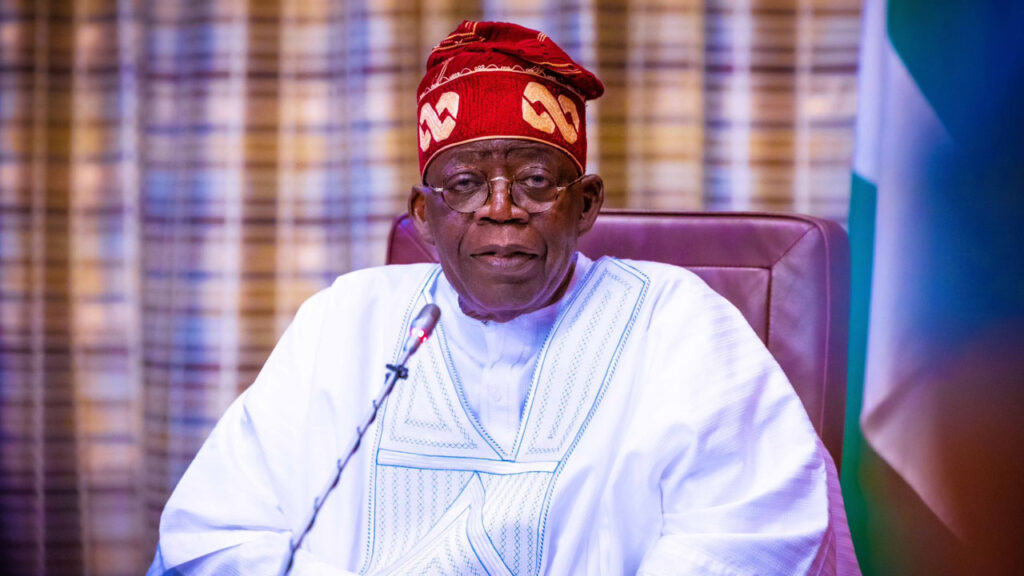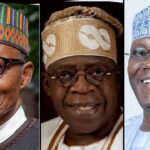
• Abiola’s son launches campaign for better nation
Disturbed by Nigeria’s myriad of challenges, former member of the House of Representatives, Prince Ned Nwoko and a lecturer in the English and Literature Department of the University of Benin (UNIBEN), Prof. Anthony Esijolomi Afejuku, have suggested how the most populous nation could wriggle out of the quagmire.
To Nwoko, who delivered a Democracy Day lecture as guest lecturer at the weekend in Abuja, the lack of autonomy for local governments remained the root cause of most problems bedevilling the country today.
In his presentation titled ‘Getting it right ahead of 2023’ and presented at the event, organised by the Federal Capital Territory NUJ Correspondents Chapel, the philanthropist also blamed the governors for allegedly not allowing the independence of the third tier of government see light of day.
According to Nwoko, who represented Aniocha/Oshimili Federal Constituency of Delta State in the lower legislative chamber between 1999 and 2003, local governments’ autonomy is the “beginning and end of all Nigeria’s problems.”
He said he was happy and sad when President Muhammadu Buhari a couple of months back identified the mess in that tier of government.
The guest lecturer explained that his happiness followed the President’s identification of the problem, but was sad on the hand because the Nigerian leader is yet to take the bull by the horns.
His words: “If N300 million is earmarked for the local governments, N100 million of it does not get to them, the President said it, he knows about it. Then what is stopping him from working with the National Assembly to ensure there is autonomy?”
Nwoko submitted that Buhari could issue an Executive Order on the matter. He continued: “The idea of sending money meant for the local governments to the states in the name of joint account gives room for pilfering.”
The Delta native stated that every crime is local, insisting that if all of the nation’s 744 council areas were empowered, no single one of them would be occupied by insurgents once the chairmen work collaboratively with the traditional rulers.
Admitting too that the council helmsmen might not be entrusted with funds without supervision, Nwoko stated that the various anti-corruption agencies and relevant bodies like the Economic and Financial Crimes Commission (EFCC), Independent Corrupt Practices and other related Offences Commission (ICPC), Department of State Services (DSS) and the Code of Conduct Tribunal (CCT) were there to whip them into line.
The lawyer equally identified the State Independent Electoral Commissions (SIECs) as another major contraption that needed to be addressed, “as most of the problems in Nigeria starts from there.”
“Abrogate state INEC and put in place a truly independent INEC run by independent body (and) not by any elected person,” he advocated.
Believing that credible leaders could be elected in 2023 to turn the country’s fortunes around, Nwoko advised the Federal Government to urgently convene a national conference.
In his presentation as the university’s 245th Inaugural Lecturer titled, “The Autobiography of Nigeria” in Benin City, Edo State, Afejuku, observed that for the nation to know where it got wrong, it must diligently study the autobiographies of its founding fathers.
He argued that the reason why the post-colonial Nigeria was not yet out of the woods was due to its failure to pay attention to the autobiographies of the trio of Chief Obafemi Awolowo, Dr. Nnamdi Azikwe and Alhaji Ahmadu Bello, which he described as the “official records of Nigeria.”
The columnist noted that the autobiographies, ‘The Autobiography of Chief Obafemi Awolowo’, Azikwe’s ‘My Odyssey’ and Bello’s ‘My Life’, “in different degrees, dwell on the need for Nigerians of all religions and political groups to discern and articulate interconnections between ethnic, religious and linguistic diversions to construct (and reconstruct) a sense of shared nationhood.”
Agreeing with Prof. Adebayo Williams that “Awolowo was a social reformer and crusader for the inalienable right of every citizen to access life more abundant,” the don affirmed that the late sage was a key proponent of healthy attitude.
SIMILARLY, the eldest son of Chief Moshood Abiola, the late winner of the annulled June 12,1993 presidential election, Kola, has launched a social media app, #tribe naija, to unite and mobilise Nigerians for a better nation.
He asserted that the current system could not work for the good of all until it is “disrupted” and “turned on its head.”
Speaking at the weekend in Abuja on the theme, “This thing called democracy “, he submitted: “So let us not make a mistake about the system. There is no system. We have inherited a system and it is time we turn that system on its head. The system just throws up what they want us to have and we have to pick from what they throw up for us to vote for.
“We will change that on this platform because our numbers will count and we will have a say. You will know exactly the numbers we have at ward, local and state basis through this platform. I am committed to making that happens.”













